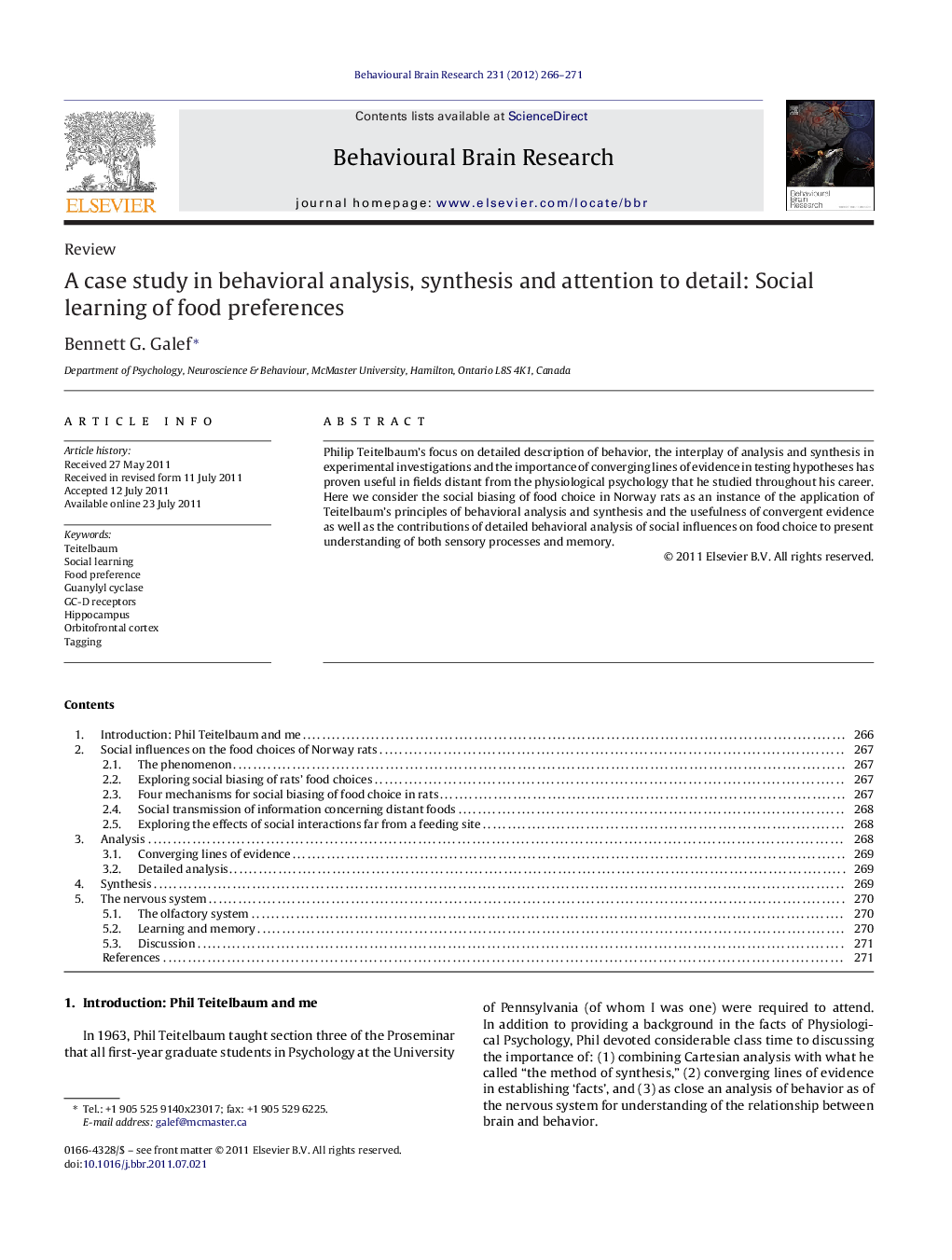| Article ID | Journal | Published Year | Pages | File Type |
|---|---|---|---|---|
| 4313068 | Behavioural Brain Research | 2012 | 6 Pages |
Philip Teitelbaum's focus on detailed description of behavior, the interplay of analysis and synthesis in experimental investigations and the importance of converging lines of evidence in testing hypotheses has proven useful in fields distant from the physiological psychology that he studied throughout his career. Here we consider the social biasing of food choice in Norway rats as an instance of the application of Teitelbaum's principles of behavioral analysis and synthesis and the usefulness of convergent evidence as well as the contributions of detailed behavioral analysis of social influences on food choice to present understanding of both sensory processes and memory.
► After interacting with a demonstrator rat, an observer rat prefers the food its demonstrator ate. ► Effects of demonstrators on their observers food preferences last for months. ► Observers exhibit durable preferences for several foods eaten by several demonstrators. ► Enhanced preferences result from simultaneous exposure to a food odor and a component of rat breath. ► These features of flavor enhancement facilitate studies of both olfactory perception and memory.
